- Home
- Patricia Briggs
Wolfsbane s-2 Page 15
Wolfsbane s-2 Read online
Page 15
“You think they were more than dreams?” She couldn’t tell what he thought from his voice.
“I didn’t at first, though I thought it was strange that in my dreams they never asked where ‘Wolf ’ was—I don’t think of you as ‘Cain’ very often. That’s what my father asked me. He said, ‘Don’t tell me you’ve forgotten where you put Cain.’ ” She laughed softly, shaking her head. “As if you were a toy I’d misplaced.” She grinned at him. “I thought that one was just worry because you’d left so abruptly.”
She lost her smile. “That’s where the color of your mother’s hair comes in. The last dream, the one I had in the inn on the way here, was even odder than the others. At least they seemed to come from my experiences: This one wasn’t about anything I’d ever seen.”
“It concerned my mother?”
Aralorn nodded. “Partially, yes. It was more a series of dreams. They all concerned you—things you had done.”
“What sorts of things?”
“Unpleasant ones. Like when your mother died. Someone who didn’t know you as well as I do might have thought you didn’t feel anything.”
“I didn’t.”
Aralorn shot him a look of disbelief, remembering the boy’s frozen face, then shook her head at him. “Right,” she said dryly. “At any rate, that was the first part. In another, I was tied down, and you were going to kill me. But I knew there was something wrong, and I fought it. When I did, it . . . altered. I was watching again, and it was the ae’Magi who held the knife. He offered it to you, and you refused.”
“I didn’t always,” commented Wolf softly—he had stiffened again.
Aralorn tightened her grip briefly on his arm. “I know. But you wouldn’t smile while you killed—or talk either, for that matter. At any rate, the last part was when you destroyed the tower. What I saw at first presented you as a power-mad mage, but this time it was easier to shift the dream back to what really happened. I can picture you motivated by rage, hurt, or cold-blooded anger, but greed just doesn’t fit.”
“The story you told tonight made you think that something was sending you dreams like the Dreamer?” repeated Wolf carefully.
“It sounds even stupider when you say it than when I think it,” she commented, but she slid back under the covers and huddled near his warmth just the same. How to explain the alien feel of the dreams without sounding even stupider? “I didn’t know the color of your mother’s hair, or that you were trying to destroy yourself with the tower. We are living in odd times.” Times made odder by the last ae’Magi’s foray into forbidden magics—she didn’t need to say it. Wolf knew his father was in some part responsible for the changes taking place. “Dragons fly the Northland skies, and howlaas venture into Reth.”
She continued without pause. “There has even been a resurgence in the followers of the old gods for the past several years. Look at the temple here. It’s been centuries since there was a priest in residence, but there’s one here now. The trappers have been decimated by nasty critters like the howlaa and other things that haven’t been seen in generations. Is it so impossible that . . . that something else was awakened?”
Wolf broke in. “You mean that the black magic my father worked might have fed the Dreamer you told us about tonight?”
“Yes.” She swallowed. “That howlaa today. It was sent, Wolf.”
“Sent?” asked Wolf.
“Uhm.” She nodded. “When I met its gaze, it spoke to me. Something evil sent it searching for us—it was meant to kill you.” She hesitated, then continued. “Then there was the wind . . . Wolf, I believe that there is something evil here.”
Silence lingered for a while as Wolf thought of what she’d said.
“Well,” he said finally, “as long as we are throwing out odd theories, I have developed one of my own, just for you. It even has to do with dreaming.”
“You didn’t laugh at mine, so I won’t laugh at yours,” she promised.
“Right,” he replied. “When it became obvious to me that Kisrah had worked the spell, I thought about just what it would have taken to persuade him to do so. I could only think of one thing—and tonight I realized that it was even possible. Let me tell you a little something you may not have known about human magic.”
“That doesn’t limit the topic much,” she quipped.
He ruffled her hair. “Quiet, little mouse, and listen. Human mages have different talents; one of them—though it is very rare—is a form of farseeing. The mage’s spirit leaves his body and can travel over vast distances in a matter of moments. In that state, he can speak to others in their dreams or merely watch them. Usually, they are invisible in that form—but occasionally they can be seen as a ghostly mist.”
“All right,” agreed Aralorn. “I think I’ve heard of that. It’s called spirit travel or something of the sort—but I thought it was rare.”
“Like shapeshifters,” agreed Wolf.
“Your point,” she acquiesced, grinning a little in the darkness of the chilly old castle room. “So you think that maybe my dreams might be coming from a human mage? Someone deliberately trying to get information from me?”
“My father could do it,” said Wolf softly. “I heard him talking about it once with another wizard. They were discussing another mage, I think. I don’t know which one. He said, ‘Of course I’m certain he’s a dreamwalker. I have some talent in that direction myself.’ I think he used his talent to influence his rise to power—by speaking to the other mages as they slept.” He hesitated a moment, then added, “I remember, because I marked a rune on my staff that kept him from doing the same to me as soon as I overheard him.”
Aralorn tightened her arms around him, wondering how he was still sane after all his father had done to him. He squeezed her in return—to comfort her, she thought—and continued to speak without a pause.
“If the body of a dreamwalker is killed while the spirit is outside, the spirit remains alive for a time. He probably would not be able to work magic as a spirit, but he can persuade others to act on his behalf.”
“A ghost?” she asked.
He grunted. “No. Ghosts are . . . bits of memory trapped in place. A spirit is—it’s too late at night for lessons in magic theory, my Lady. Let me get back to the subject at hand. It is possible that my father managed to leave his body before the Uriah killed him. In that state, he could have visited Kisrah—as well as the other mage who appears to have had his hands in the pie—and persuaded them to act in his stead.”
“You think the only reason Kisrah would use black magic ...”
“Was if my father asked him to do so,” said Wolf. “Yes.”
“To use Father as bait for us.”
“Perhaps.”
Aralorn stiffened at his cautious tone, which usually meant things had gone from bad to worse. “What do you mean?”
“My father wanted to live forever, Lady. Do you think that he would be content with mere vengeance?”
“You think he’s trying to use Father’s body?”
“Your father can’t work magic; but your father is connected intimately with three mages. Attack him with magic, and my father has a whole selection to choose among.”
“He would prefer yours since you are the most powerful of the three.” Aralorn shivered and settled closer. “I think I prefer the Dreamer.”
“Perhaps,” suggested Wolf mildly, “we’ll be lucky, and it is only Kisrah trying to kill me.”
She snickered into his shoulder. “Not everyone would look at that as lucky.”
“Not everyone is looking at our list of alternatives.”
“True.” She yawned.
They fell silent, and she thought Wolf had drifted off to sleep. She patted him gently.
Her uncle had said that Wolf had a death wish.
She’d known that he had a tendency to be reckless, thought that it was something they shared. In her dreams (and she was convinced that the memories of Wolf’s experiences were true dreams, howeve
r they’d been sent), she’d seen that he’d expected death when he’d destroyed the tower. He’d hoped for death. Apparently, he still did.
She took in a deep breath of his familiar scent and held it to her heart. She would not lose him.
“Tomorrow, I think we might visit the priestess of the death goddess,” she said. He had been asleep, because her voice jerked him awake. “If there’s a ghost or a Dreamer out there, the death goddess ought to know—don’t you think?”
“Could be,” Wolf muttered groggily. “Go to sleep, Aralorn.”
EIGHT
“I hadn’t expected this to become an expedition,” muttered Aralorn softly to Sheen as she rocked back and forth with his exuberant stride. He was feeling frisky after his rest, and his steps were animated and quick. Wolf, gliding soundlessly beside the gray warhorse, gave her a sardonic look before turning his attention to the snowy path.
She shook her head, and said in a tone meant to carry to her escort, “It’s not as if Lambshold is riddled with outlaws. Even if it were, I am fully capable of taking care of myself.”
“See, Correy,” boomed Falhart from behind her and somewhat to the left, “I told you she’d like to have some company.”
“She’s been gone a long time. She’s probably forgotten where the temple is,” said Correy solemnly, behind her and to the right. “Dead howlaas aside, an itty-bitty runt like her needs her big brothers to protect her.”
Aralorn spun Sheen around on his hocks with enough speed to leave the stallion snorting and looking for the enemy. If she’d known what an overprotective streak the howlaa was going to stir up, she would never have let Correy know it was there. Let his stupid sheep get eaten by wolves. Protection she might have to put up with while she was here, but . . .
She pointed accusingly at Correy. “You promised no more jokes about my size.”
“Or lack thereof,” added Falhart smugly.
“No,” said Correy. “Falhart is the one who promised. Besides, I just commented on our size, right, Gerem? Just because your thirteen-year-old brother is a hand and a half taller than you doesn’t mean you’re small. We just happen to be taller than most people.”
“Especially itty-bitty runts like you,” added Falhart helpfully.
She shook her head at the three of them. Hart had come because he wanted to get out and ride. Correy, she thought, had come out of an honest desire to protect her. Gerem, she strongly suspected, had come to save her hulking brothers from their nasty, shapeshifting sister, itty-bitty runt or not.
“Men,” she snorted with mock disgust.
She pivoted Sheen until he faced their original direction and sent him off racing across the sun-sparkled snow, smiling when her brothers called out in protest at her head start as they picked up the race.
* * *
Ridane’s temple was a large structure nestled in an isolated valley. Aralorn remembered the “new” temple as a ruin heavily overgrown with ivy, but even under the snow, she could see that was no longer the case. Someone had been doing quite a lot of work, and the result was elegant and impressive. The snug little house built unobtrusively on one side was a new addition to the site as well.
Correy pointed to it. “When Father heard there was a priestess at the temple, he rode here by himself to talk with her. When he got back, he sent me out with a score of workmen to build her a house to live in.”
Falhart grinned at Aralorn. “Correy’s been really helpful around here. He took several days to clear the ivy and a week to scrub the lichen off the stone. He even got the old well working again.”
Before Correy could reply, a cheery “Who comes?” rang out from the cottage, and the door opened to reveal a woman bundled in a wool cloak dyed cherry red. She shut the door behind her and came out to greet them.
“My lords! And isn’t it a cold day to be out visiting, I’m thinking.” The priestess, for she could be no other, was close enough for Aralorn to see that her face matched the promise of her voice. A warm smile lit eyes the color of dark-stained oak, and it was aimed particularly at Correy.
Correy jumped lightly off his horse and took one of her hands in his, bringing it to his lips. “Any day with you in it, Lady, is as warm as midsummer’s eve.”
Hmm, thought Aralorn. Maybe Correy didn’t come to protect me after all.
Falhart shook his head as he dismounted also. In tones of apologetic despair, he addressed the priestess. “Smooth-tongued demon, isn’t he? I’m sorry, Tilda. It’s my fault. I taught him all I knew.”
“That took the better part of supper,” confided Correy without releasing the priestess’s hand. “And only that long because he was eating most of the time. It’s amazing the man ever managed to get married in the first place.”
Aralorn slipped off Sheen and dropped his reins to the ground.
“It’s obvious that he wasn’t teaching you manners,” Aralorn muttered in a voice loud enough for everyone to hear, “or you would have introduced me by now.”
“Forgive me, O Small-but-Sharp-Tongued-One,” said Falhart, taking Aralorn’s hand gallantly. “I have neglected my duties as older brother. Tilda, allow me to present my sister Aralorn. Aralorn, this is Tilda, priestess of the death goddess.”
“The shapeshifter,” murmured Tilda thoughtfully.
“The mercenary,” Aralorn murmured back.
They exchanged cheerful grins. Then the priestess turned to Gerem, standing quietly beside his mount.
“Gerem,” said the priestess, “well come. I haven’t seen you since last summer.”
Aralorn watched Gerem’s face closely, but apparently Nevyn had no objection to the death goddess, for Gerem’s smile was genuine, lighting his eyes as it touched his lips. “I’m sorry, Lady, but Correy made us stay home so he could have you to himself.”
“To what do I owe this visit? Would you like to come in?” Tilda gestured to her house.
Correy shook his head. “Today’s an official visit to the priestess, I’m afraid. Aralorn thinks Ridane might be able to shed some light on the matter with Father.”
The priestess lost none of her warmth but nodded understandingly. “I was not surprised when I was told he was not dead—Ridane had said nothing of his death to me. I don’t know if She knows any more than you do, but you may certainly ask. Would you go into the temple? I will meet you inside.”
Aralorn followed her brothers to the main entrance of the temple. Correy started to open the rough-hewn, obviously temporary door, then hesitated.
“Aralorn, I think it might be best if you leave your wolf outside,” he said.
“The wolf is one of the death goddess’s creatures,” said Gerem unexpectedly. “I doubt the goddess will object—though her priestess might.”
Wolf settled the matter by slipping through the narrow opening and into the temple.
Aralorn shrugged. “I suspect this temple has been infested by everything from rats to cows over the last hundred years. One animal more or less will make little difference.”
Correy shook his head but opened the door farther and allowed the rest of them to pass. As Aralorn moved by him, he caught her arm.
“Don’t be fooled by Tilda’s friendliness. The death goddess has a very real presence here. Be careful how far you choose to push Her.”
Aralorn patted him gently on the top of his head—she had to stand on her toes to do it. “Go teach Lord Kisrah how to cast a light spell, baby brother. I’m not as uncivilized as it sometimes appears.”
Brushing by him, she walked into the entrance hall. It was not very impressive as such things go. Although it was large enough for twoscore people to stand without feeling crowded, there was still a multitude of evidence of the temple’s long spell of neglect. High above, the vaulted ceiling showed white plaster and gaping holes where frescoed wolves and owls once frolicked. The floor had been pulled up and the usable flagstone piled to one side. On the other side, several large and crudely made benches lined the wall.
Though there w
as no sign of a fire, the room was remarkably warm. When the men began to toss their cloaks and gloves on the benches, Aralorn did the same.
As she dropped her gloves on top of her cloak, the creak of door hinges drew her attention to the far end of the room. The doors set in the wall were neither makeshift nor temporary; only years produced such a fine patina in bronze. They swung slowly open with a ponderousness in keeping with their hoary age.
Dressed in robes of black and red, Tilda stepped through the doorway onto the narrow platform set between the doors and the three stairs down to where Aralorn and her brothers waited. They approached the priestess with varying degrees of wariness, reverence, and enthusiasm. When Correy stopped several feet from the stairs, the rest of them did as well, leaving the priestess above them.
“You are come to ask about the Lyon.” The priestess’s voice had lost the hills accent and the warmth. Her earthy beauty was in no way faded, but it seemed out of place.
Aralorn thought it wasn’t Tilda speaking at all. A shiver ran through her. She could never have stood for such a thing; the last ae’Magi had come close to controlling her thoughts. Even as part of her shuddered in distaste, she felt a flash of awe—and satisfaction. This priestess was a priestess in truth; even her small store of green magic told her that much. She might really be able to help the Lyon.
“My father lies with the seeming of death,” said Correy, when no one else spoke. “Can you free him?”
She seemed to consider it a moment, and Aralorn held her breath. Finally, the priestess shook her head. “No. There are limits on the things that I control. This is no death curse, though he may die of it, and I can do little but speed his death. That I will not do without reason.”
“How long—” Aralorn’s voice cracked, and she had to try again. “How long before he dies of the magic?”
“A fortnight more will the spell hold stable. Until that time, he comes not unto me.”
“Two weeks,” said Aralorn softly to herself.
“As I said,” replied the priestess.
“Do you know of the Dreamer?” asked Aralorn, drawing surprised looks from her brothers.

 Wolfsbane
Wolfsbane When Demons Walk
When Demons Walk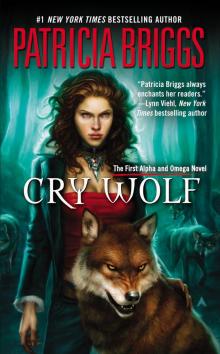 Cry Wolf
Cry Wolf On the Prowl
On the Prowl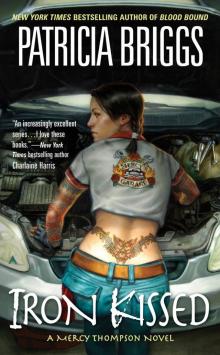 Iron Kissed
Iron Kissed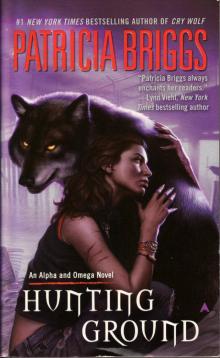 Hunting Ground
Hunting Ground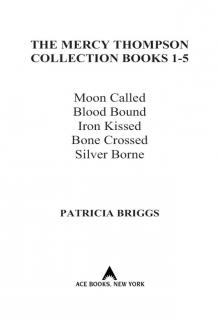 Patricia Briggs Mercy Thompson: Hopcross Jilly
Patricia Briggs Mercy Thompson: Hopcross Jilly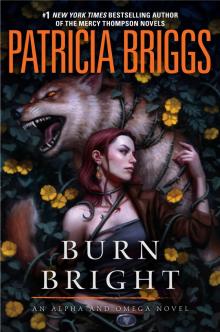 Burn Bright
Burn Bright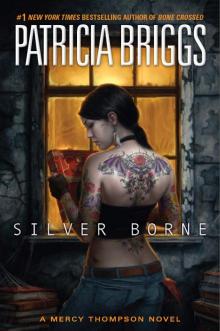 Silver Borne
Silver Borne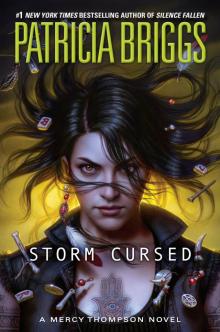 Storm Cursed
Storm Cursed Shifting Shadows
Shifting Shadows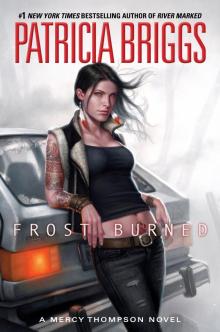 Frost Burned
Frost Burned River Marked
River Marked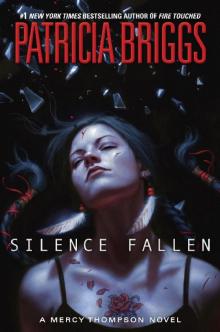 Silence Fallen
Silence Fallen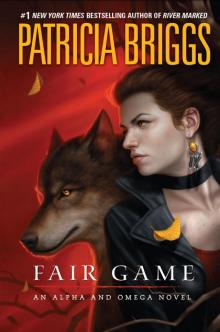 Fair Game
Fair Game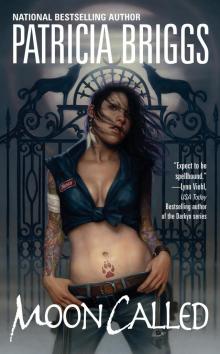 Moon Called
Moon Called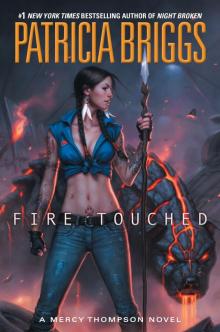 Fire Touched
Fire Touched Dead Heat
Dead Heat Blood Bound
Blood Bound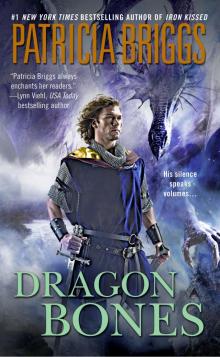 Dragon Bones
Dragon Bones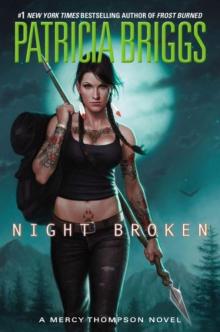 Night Broken
Night Broken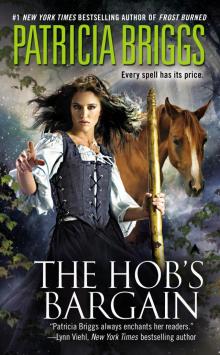 The Hobs Bargain
The Hobs Bargain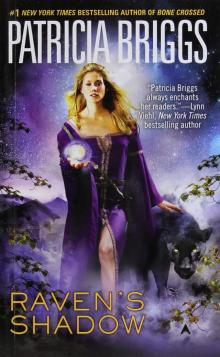 Ravens Shadow
Ravens Shadow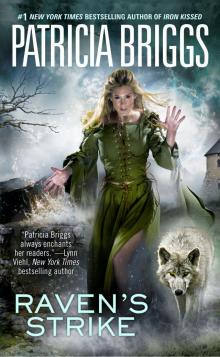 Ravens Strike
Ravens Strike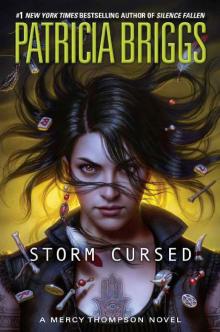 Storm Cursed (A Mercy Thompson Novel)
Storm Cursed (A Mercy Thompson Novel)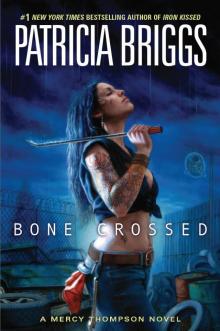 Bone Crossed
Bone Crossed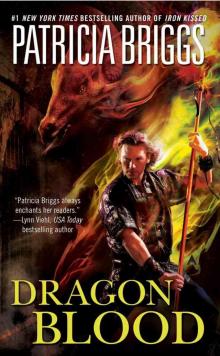 Dragon Blood
Dragon Blood Smoke Bitten: Mercy Thompson: Book 12
Smoke Bitten: Mercy Thompson: Book 12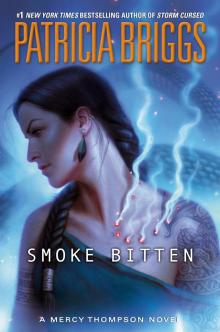 Smoke Bitten
Smoke Bitten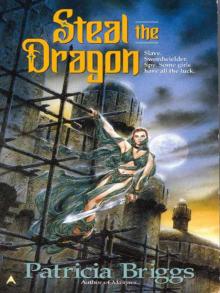 Steal the Dragon
Steal the Dragon 0.5 On The Prowl (alpha and omega)
0.5 On The Prowl (alpha and omega) Alpha and Omega
Alpha and Omega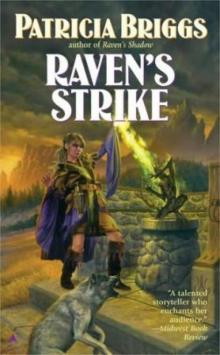 Raven's Strike rd-2
Raven's Strike rd-2![[Mercy 03] - Iron Kissed Read online](http://i1.bookreadfree.com/i/03/24/mercy_03_-_iron_kissed_preview.jpg) [Mercy 03] - Iron Kissed
[Mercy 03] - Iron Kissed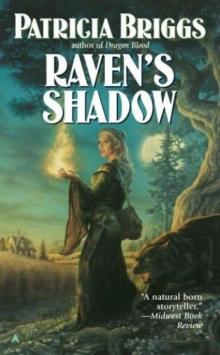 Raven's Shadow rd-1
Raven's Shadow rd-1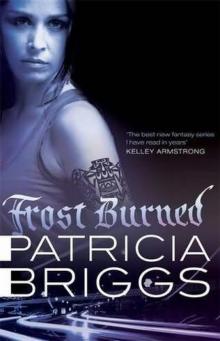 Frost Burned mt-7
Frost Burned mt-7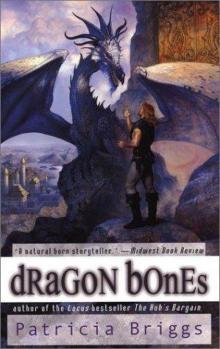 Dragon Bones h-1
Dragon Bones h-1 Shifting Shadows: Stories from the World of Mercy Thompson
Shifting Shadows: Stories from the World of Mercy Thompson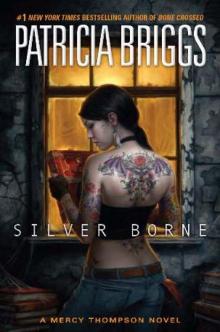 Silver Borne mt-5
Silver Borne mt-5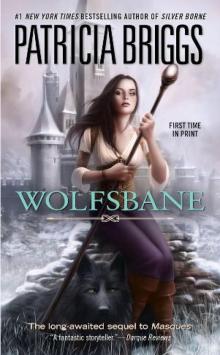 Wolfsbane s-2
Wolfsbane s-2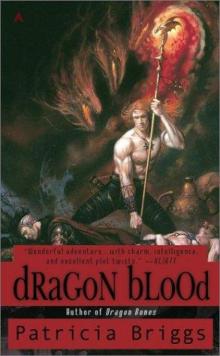 Dragon Blood h-2
Dragon Blood h-2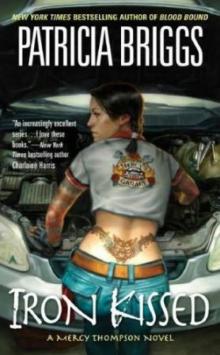 Iron Kissed mt-3
Iron Kissed mt-3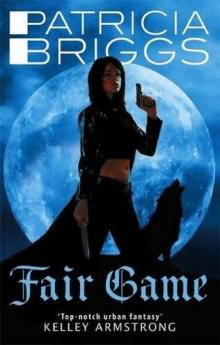 Fair Game aao-3
Fair Game aao-3 Masques s-1
Masques s-1![[Hurog 01] - Dragon Bones Read online](http://i1.bookreadfree.com/i1/04/03/hurog_01_-_dragon_bones_preview.jpg) [Hurog 01] - Dragon Bones
[Hurog 01] - Dragon Bones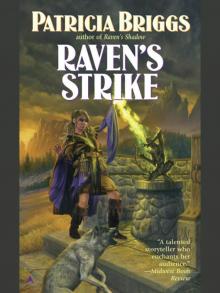 Raven s Strike
Raven s Strike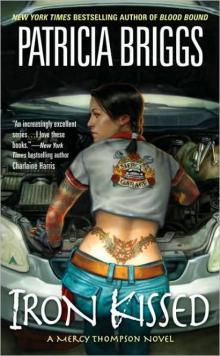 Mercedes Thompson 03: Iron Kissed
Mercedes Thompson 03: Iron Kissed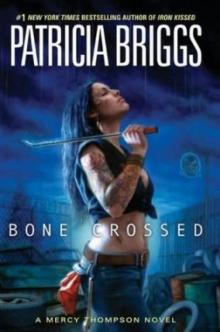 Bone Crossed mt-4
Bone Crossed mt-4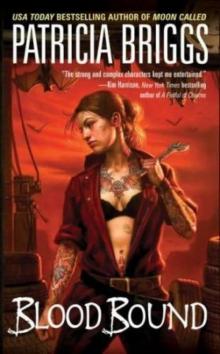 Blood Bound mt-2
Blood Bound mt-2![[Mercy 01] - Moon Called Read online](http://i1.bookreadfree.com/i2/04/09/mercy_01_-_moon_called_preview.jpg) [Mercy 01] - Moon Called
[Mercy 01] - Moon Called River Marked mt-6
River Marked mt-6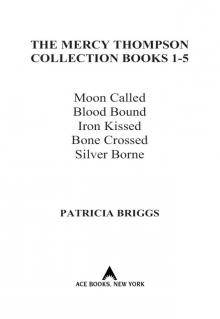 The Mercy Thompson Collection
The Mercy Thompson Collection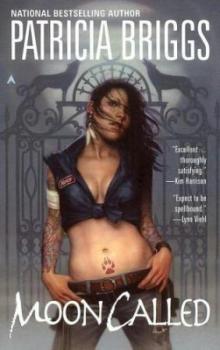 Moon Called mt-1
Moon Called mt-1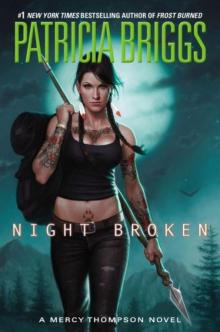 Mercy Thompson 8: Night Broken
Mercy Thompson 8: Night Broken